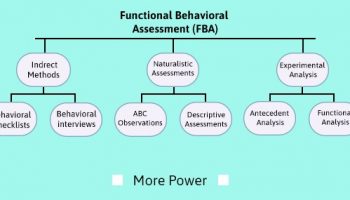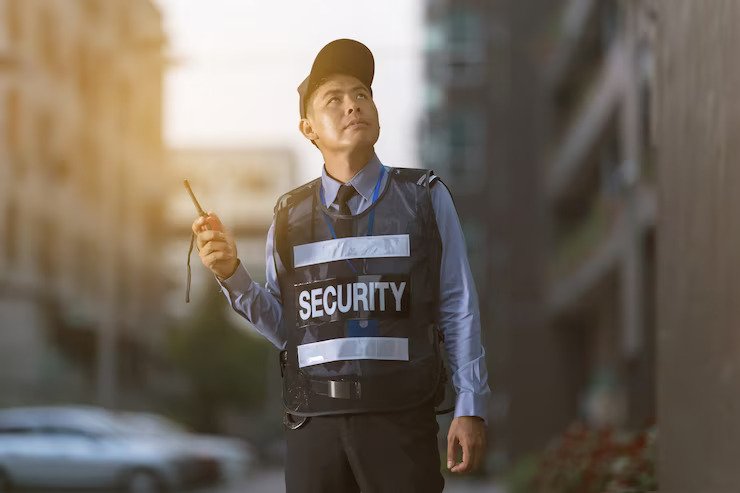Effective communication is a vital skill for security personnel in the Role after completing the Certificate II Security Operations course.
As security professionals, their ability to communicate clearly, assertively, and empathetically plays a crucial role in maintaining public safety, preventing security threats, and resolving conflicts. This article explores the significance of communication skills within the context of security operations and highlights key strategies that security personnel can employ to enhance their communication abilities.
I. Importance Of Communication Skills In Security Operations

A. Ensuring Public Safety
Clear and concise communication is essential in ensuring public safety within the realm of security operations. Security personnel must effectively relay information to both colleagues and the public, such as identifying potential threats, providing directions during emergencies, or conveying safety instructions.
B. Conflict Resolution
Security personnel often encounter situations that require conflict resolution skills. Effective communication allows them to de-escalate conflicts, diffuse tense situations, and maintain a safe environment. By employing active listening, empathy, and effective verbal and non-verbal communication techniques, security personnel can mitigate conflicts before they escalate.
C. Collaborative Efforts
In security operations, effective communication fosters collaboration among team members. It enables security personnel to coordinate their actions, share information, and work together to address security concerns. By maintaining open lines of communication, security personnel can respond promptly to incidents and ensure a coordinated and efficient response.
II. Strategies For Enhancing Communication Skills

A. Active Listening
Active listening is a foundational skill for effective communication. Security personnel must actively engage with individuals, paying attention to their verbal and non-verbal cues. By listening attentively, security personnel can gather relevant information, understand concerns, and demonstrate empathy, which contributes to building trust and rapport.
B. Clarity and Conciseness
Clear and concise communication is crucial, especially during emergencies or high-stress situations. Security personnel should use simple language, avoid jargon, and articulate information in a manner easily understood by diverse audiences. Providing concise instructions and information reduces the chances of misinterpretation and ensures effective communication.
C. Non-Verbal Communication
Non-verbal communication, such as body language and facial expressions, can convey messages as powerfully as verbal communication. Security personnel should be mindful of their non-verbal cues, projecting a confident and approachable demeanor. Maintaining eye contact, using appropriate gestures, and displaying active body posture can enhance communication and establish trust.
D. Empathy and Cultural Sensitivity
Security personnel interact with individuals from diverse backgrounds and cultures. Demonstrating empathy and cultural sensitivity is essential to establish rapport and avoid misunderstandings. Understanding cultural differences, respecting personal boundaries, and adapting communication styles accordingly contribute to effective communication in security operations.
E. Conflict Resolution Techniques
Conflict resolution skills are crucial for security personnel when encountering challenging situations. Techniques such as active listening, problem-solving, and compromise help security personnel address conflict professionally and peacefully. By remaining calm, empathetic, and assertive, they can defuse tensions and maintain a safe environment.
F. Verbal De-escalation
Verbal de-escalation techniques are invaluable tools for security personnel. By employing effective communication strategies, security personnel can calm agitated individuals and prevent situations from escalating into physical confrontations. These techniques involve using calming phrases, maintaining a calm tone, and redirecting conversations toward resolution.
G. Effective Report Writing
Accurate and comprehensive report writing is an essential communication skill for security personnel. They must document incidents, observations, and interactions in a clear and concise manner. By utilizing proper grammar, and objective language, and providing sufficient detail, security personnel ensure that their reports are accurate and usable for investigative purposes.
Conclusion:
Effective communication skills are indispensable for security personnel in Certificate II Security Operations. From ensuring public safety to conflict resolution and collaborative efforts, strong communication abilities contribute to a safe and secure environment.
By actively listening, employing clear and concise language, practicing empathy, and utilizing conflict resolution techniques, security personnel can enhance their communication skills and effectively carry out their responsibilities.
Ongoing training, professional development, and the utilization of technology further support their communication effectiveness. With continuous improvement and application of these strategies, security personnel can maintain a high standard of communication and professionalism in the field of security operations.
Read Also:




























